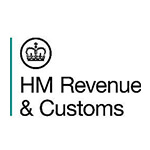For businesses within the transport and logistics sector, new guidance has been provided to assist with getting ready for a ‘no deal’ scenario during this time of Brexit uncertainty. Companies must give careful thought to the Government’s three key areas of advice to assist with their overseas trading.
HMRC advice

It is estimated that there will be an increase in the number of annual customs declarations of about 200m after Brexit. Of this, about 145,000 businesses will be required to submit declarations for the first time. Due to this, HMRC has advised all UK VAT-registered businesses that only trade in goods with the EU on what they should be doing to prepare for the possibility of a no-deal Brexit scenario.
As Brexit is fast approaching, it is important that companies prepare for the worst; they will need to start investing in mitigation strategies. Businesses within the transport and logistics sector have been recommended to obtain an Economic Operator Registration and Identification (EORI) number, which is made up of the company’s VAT number plus a three-digit suffix. This number will be needed to continue to trade with EU member states and may be required regardless of whether the Brexit deal goes ahead or not. Securing this now may help to ensure overseas trading activities continue with minimum disruption.
What will happen following Brexit?
 The guidelines set by HMRC also highlight the importance of transport and logistics businesses taking a carefully planned approach to making customs declarations. Following Brexit, VAT- registered businesses will have to navigate the complex process of making customs declarations. This can either be done in house, using specialist software, or by engaging a third-party customs broker.
The guidelines set by HMRC also highlight the importance of transport and logistics businesses taking a carefully planned approach to making customs declarations. Following Brexit, VAT- registered businesses will have to navigate the complex process of making customs declarations. This can either be done in house, using specialist software, or by engaging a third-party customs broker.
Act now
It is important that decisions are made soon so that declarations can be submitted from 29 March 2019. If software providers are informed now about business situations, they can be proactive. Moreover, it’s important to check whether a broker/agent requires any specific information, or additional training to fulfil any new requirements, which will likely have time and cost implications.
Plan ahead
![]() Other than following HMRC guidance, it is also advised that businesses plan ahead by drawing out different supply chain scenarios and consider how to strengthen their cash flow. Methods that could assist with this are to look at whether a bank guarantee is required and calculating the potential duty bill to be paid. Organisations completing customs declarations for the first time should also be aware that HMRC is granting funding for training and software improvements, which could help to offset the cost of this investment.
Other than following HMRC guidance, it is also advised that businesses plan ahead by drawing out different supply chain scenarios and consider how to strengthen their cash flow. Methods that could assist with this are to look at whether a bank guarantee is required and calculating the potential duty bill to be paid. Organisations completing customs declarations for the first time should also be aware that HMRC is granting funding for training and software improvements, which could help to offset the cost of this investment.
It is advised that traders should consider obtaining Authorised Economic Operator (AEO) certification which will demonstrate to suppliers and customers that there are reliable processes in place to deal with customs arrangements. This is considered to be an expensive and lengthy process and is not a solution to the Brexit issue. The current Customs Handling of Import and Export Freight (CHIEF) system will be replaced in 2019 by the Customs Declaration Service (CDS) and as part of this, a new trade tariff has been introduced.
Better late than never
Businesses within the transport and logistics sector that have not already taken action, may have left it too late. However, it is best to start following HMRC’s guidance now, as it is still unclear as to how the UK’s future trading relationship will be. Taking this approach now could leave businesses in a better position to streamline processes and set themselves apart from competitors if the worst happens.
For further information or should you wish to discuss this further then please contact Sean Turner on sturner@menzies.co.uk or (+44) 0207 465 1908 .
